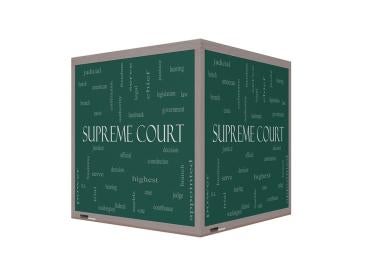On May 30, 2017, the U.S. Supreme Court issued its opinion in BNSF Railway Co. v. Tyrrell(BNSF), another case that defines the constitutional limits of general personal jurisdiction over companies.
The major issue in BNSF was whether a railroad company had a substantial enough presence in Montana for the Montana courts to assert general jurisdiction over the company. The Court’s decision also answered whether a federal law, the Federal Employers’ Liability Act (FELA), conferred personal jurisdiction to state courts over railroad companies wherever they are “doing business.”
The Court held that Montana state courts did not have general personal jurisdiction over BNSF. It reaffirmed its holding from Daimler AG v. Bauman (Daimler): that general jurisdiction for companies exists where a company is headquartered and where it is incorporated. Finding general jurisdiction anywhere else requires an “exceptional case.”
The holding in BNSF maintains a high bar for finding general jurisdiction over corporate defendants and limits plaintiffs’ opportunities to “shop” for favorable forums.
Background
BNSF is the second Supreme Court personal jurisdiction case this term. The first, Bristol-Meyers Squibb Co. v. Superior Court of California, which we wrote about here, addresses whether a plaintiff’s injuries must arise from a company’s activities in a state for a court in that state to have jurisdiction over the company. This type of personal jurisdiction is called “specific” jurisdiction because it depends on the specific facts underlying the case.
BNSF focused on “general” jurisdiction, which is when courts have jurisdiction over a company because of its substantial and continuous presence in a state. In Daimler, decided in 2014, the Court held that general jurisdiction applies when a company is “at home” in the forum. A company is typically “at home” where it is headquartered and where it is incorporated.
Montana Supreme Court: Off the Rails
BNSF involved two lawsuits that were filed in Montana state court. The plaintiffs were not residents of Montana and were not injured in the state. They brought suit under FELA, which allows railroad employees to sue railroads for work-related injuries caused by the railroad’s negligence.
BNSF moved to dismiss the cases for lack of personal jurisdiction. It argued that the plaintiffs’ injuries did not arise in Montana and that the company was not “at home” in the state. The plaintiffs responded that BNSF’s presence in the state was substantial and that a provision in FELA separately conferred jurisdiction wherever a railroad was “doing business.”
After the court dismissed one case and let the other proceed, the Montana Supreme Court consolidated the inconsistent cases for review. It held that Montana had jurisdiction over BNSF.
First, it found that FELA granted jurisdiction to state courts wherever a railroad was “doing business.” Next, it concluded that state court jurisdiction under FELA satisfied due process because BNSF had a substantial presence in the state. The court observed that BNSF had more than 2,000 employees and over 2,000 miles of railroad track in Montana. BNSF also owned real estate, maintained facilities, and advertised in the state.
The Montana Supreme Court’s decision conflicted with three other state supreme court decisions, recapped here. The three decisions similarly analyzed FELA claims filed in a state where the plaintiff was not a resident and the injury occurred in other states. The Oregon and Missouri Supreme Courts rejected the plaintiffs’ jurisdictional arguments, in part because they found that the railroads’ contacts with their states did not make the companies “at home” there.
Next Stop: The Supreme Court’s Opinion Provides an Exit
An 8-1 majority of the U.S. Supreme Court reversed the Montana Supreme Court’s decision, holding that Montana state courts did not have personal jurisdiction over BNSF. In an opinion written by Justice Ginsburg, the Court first determined that the provision in FELA relied on by the Montana Supreme Court to find that the state courts had personal jurisdiction over BNSF addressed venue and not jurisdiction.
Next, the Court held that Montana state courts did not have general personal jurisdiction over BNSF because it was not “at home” in Montana. The Court’s analysis mirrored its approach to determining jurisdiction in Daimler. First, the Court noted that BNSF was not incorporated or headquartered in Montana, meaning that general jurisdiction over the company there would require an “exceptional case.”
The Court then compared BNSF’s business in Montana to its nationwide operations. It pointed out that BNSF’s revenue from Montana accounted for less than 10 percent of its total revenue, its track mileage in the state was about six percent of its total amount, and that less than five percent of its employees worked in Montana. The Court concluded that BNSF’s presence relative to its nationwide business did not make it “at home” in the state.
The Court’s opinion in BNSF reaffirms that companies doing business throughout the U.S. cannot be sued in any state just because they do business there. The opinion further restricts plaintiffs’ attempts to file suit in “friendly” forums. Going forward, companies can expect that most courts will find personal jurisdiction only where a company is headquartered or incorporated, or where the activity giving rise to the lawsuit occurred.



 i
i


